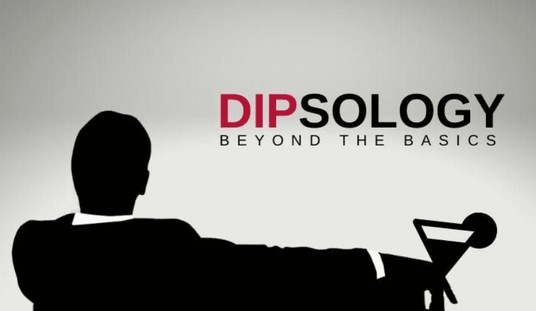An article floated across my feeds that brings up an issue that is increasingly getting more attention. It has everything to do with the view younger generations take on “work” and how Millennials and Gen Z treat it.
The article by Fortune brings up that Gen Z, in particular, seems to have lost sight of the American dream and, as such, doesn’t approach work the same way as previous generations did, if at all and tends to put more focus on “wellness” than it does prosperity:
When it comes to financial wellness, Gen Zers place less emphasis on the financial than on the wellness. Unlike previous generations, they’re unwilling to stick it out at a toxic job or forgo travel and experiences in favor of padding their savings.
The traditional markers of financial success—from owning a home to snagging that corner office at work—are becoming not only less attainable but also less valuable for Gen Zers.
Mental well-being, personal growth, and fulfillment are being reprioritized ahead of financial gain: 73% of Gen Z would rather have a better quality of life than extra money in the bank, and 66% are only interested in finances as a way to support their other interests in life.
This could be written off as a culture of laziness but that would be lazy thinking. Gen Z has clearly lost sight of what was once the American dream and has taken a different approach to work ethic as a result. The question we should be asking ourselves is how we got here.
Let’s start with the American dream itself.
As I wrote on this subject last year, decades ago our work environment looked completely different. “Hard work” was usually attributed to more success because work was more of a local affair. Being competent and dedicated to your job meant moving up the ladder and earning more pay as a result. You were a person, not a number on a payroll list. Moreover, it was possible to obtain property, own a home, and raise a family on one salary.
(READ: Conservatives Will Begin Losing Future Generations if It Doesn’t Take This Very Seriously)
Then many things changed. The invention of the internet took the locality out of many companies and made doing business a global affair. America stopped making things and began importing thanks to various policies passed in Washington, especially during the era of Bill Clinton.
Moving up in a company was slowed or halted thanks to companies preferring to stack their top positions with fresh-faced kids with expensive degrees and no experience over the experienced worker who would cost more. Modernization also came with a focus on diversity and inclusion, putting merit on the back burner.
(READ: If You Want to Collapse a Civilization, Just Institute DEI Initiatives)
Millennials saw their path to the American dream disrupted and did what their parents told them to do; work harder. Millennials began working more hours than many generations had before them in order to keep up in toxic work environments that often treated them as expendable numbers that they were. In response, millennials began returning the favor by treating corporations and jobs as a means to an end, hopping from one company to another for something as simple as more money. Since climbing the ladder wasn’t paying off, jumping would have to do.
Then the economic downturn happened thanks to the pandemic. Americans of multiple generations found their hard work swirling the drain. Businesses closed, jobs were lost, and livelihoods were destroyed. Moreover, further focuses on DEI made work environments even more toxic. Companies shot themselves in the foot constantly, resulting in layoffs when things began taking turns for the worst.
Moreover, the degrees that were obtained to help get jobs have proven to be utterly useless, leaving millennials buried in debt and desperate for a way out while they struggle to maintain a middle-class lifestyle in this environment.
And it’s at this stage that we see Gen Z entering the workforce, fresh with their own student debts and the work environment looking chaotic, unpredictable, and unreliable.
Getting mad at Gen Z for taking this view of work is like getting mad at the headache and not the brain tumor. They, like millennials, have been served up a pretty raw deal and are coming to the conclusion that working hard to obtain the American dream is unrealistic. The only conclusion they can come to is to look after number one.
The American dream is out of reach for many, so why reach for it? That’s what Gen Z is thinking.
The fix for this falls to millennials and Gen X, who are now in charge of the country. The first thing that should happen is the elimination of DEI from the corporate atmosphere. Merit must retake its spot in the business hierarchy, giving people a will to work and a sense of upward movement to reward those that do work harder.
We must de-emphasize the college degree as a stepping stone to success. A degree does not equal competency and the debt accrued in the pursuit of one leaves more debt than it does opportunities in this day and age. Tying into the idea of merit retaking its position of importance, a degree should not be a factor in one’s upward mobility within a company, rather tying dedication and competency to one’s elevation.
We must also return the economy to the hands of those who know how to grow it in realistic ways, not pie-in-the-sky hopes and dreams based on ideas that have never worked in the past. Lowering taxes, deregulation, and more small government ideas is paving the road toward individual success.
Moreover, better border policies that cut back on the financial burden of federal and state coffers are necessary in order to stop the temptation by politicians to tap the people for more money and resources. The lessening of crime will result in more money being used to protect businesses so they can focus on expanding and offering employees better pay and benefits.
These are just a few of the many solutions that must come to pass if the American dream is going to be retrieved, but at this time there are bad actors in Washington and in high corporate positions of power who don’t benefit from individual success. They have to be voted out.














